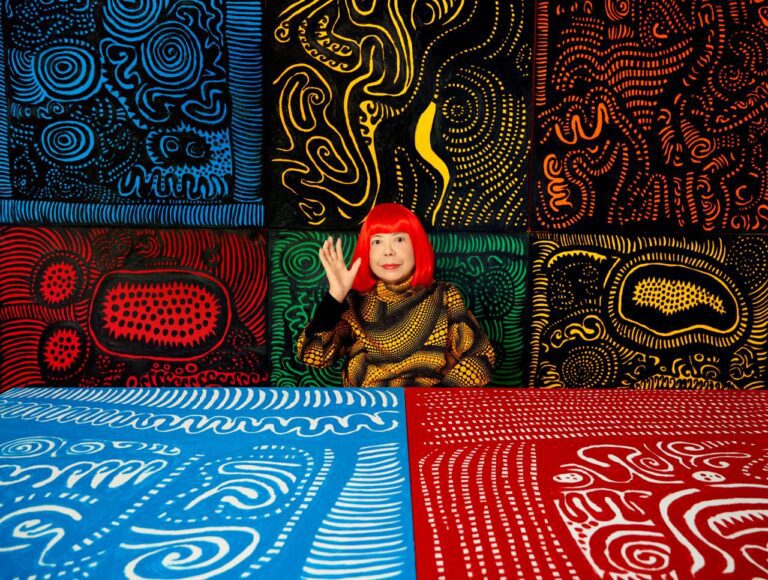Where are you from?” It was the question I asked the taxi driver whose name was Dragan. The moment I saw it displayed in the plastic pouch on the dashboard I knew that he was from the same place as me.
Still I asked. In English. It intrigued me to be the one asking rather than the one being asked. I expected him to smile placidly, and politely pronounce the name of the place he was from, perhaps followed by the number of years since he left, as I do in such situations. Dragan had no intention of doing so.
To my surprise, he lunged into an almost angry tirade on how inappropriate it was to ask complete strangers such a personal question. He proceeded to tell me how after answering the same question several times a day for more than 20 years, he decided to answer it by saying that he was from whichever location he happened to be living at the time. Presently it was Upper Hutt. I remember having the same idea once, but I never put it into practice so made no comment.
I listened to his laboured English and thought how basic and heavily accented it sounded. He wore a heavy signet ring on his right hand, which reminded me of the similar ring my father used to wear. I watched his face move inside the bushy beard that covered most of it and an orthodox cross dangling from the rear-view mirror in front of me. To my horror, the word ‘Chetnik’ popped into my mind. It was a word from my childhood that I had all but forgotten, together with its meaning, and I immediately reproached myself for letting it reappear.
I turned to face Dragan, smiled and said that I only asked as I recognised the name and we were probably from the same country. That was not true, but it made him look at me (as I knew it would) and he promptly switched to ‘our language’ (which I also knew he would). The encounter was not unfamiliar to me. Occasionally I came across others like Dragan.
Predictably, ‘our language’ turned out to be one of the languages spoken in the once existing country of Yugoslavia. In the familiar syntax of Serbian, as he called his language, Dragan relaxed and talked about the village he came from, which happened to be not far from my father’s village in Bosnia; how he studied economics – first in Sarajevo then Belgrade where he met his wife; his two sons who were only small when they first came to this country; how he and his wife made sure they both became fluent in Serbian; and, thanks to that, one son is now in Belgrade soon to be married.
Through it all I smiled and waited for one of the two inevitable questions to appear: whether I have children, or which part of Yugoslavia I was from. The location question came first.
Now it was my turn to speak ‘our language’, which, if asked, I would call Croatian. On one occasion I even came across a taxi driver from Nis who insisted on calling the language ‘Serbo-Croatian’, which is what he was taught in school. In my school in Zagreb it was called ‘Croato-Serbian’. I thought of challenging him by suggesting that there never was such a language, but rather variations on the same South Slavic language that was variously influenced over the centuries, but I knew that I no longer commanded the language sufficiently to be convincing.
I told Dragan I was born and raised in Zagreb. He stiffened but only slightly. They always do if they are old enough to remember the war. I could tell we were a similar age, which meant we were both adults when the war started. I quickly added that my father was a Serb from Bosnia, but my mother was Croatian. That warranted a sigh that sounded nostalgic.
Dragan then moved to the second question, to which I had a ready-made answer: ‘one grown-up daughter studying at university’. Of course, I knew that the inquiry into whether she spoke ‘our language’ would immediately follow, and when it did I answered in the well-practiced, matter-of-fact way that she did not. Not a word.
Predictable exclamations of “that is a great shame” and “how come you did not teach her” followed. Dragan’s voice however carried more reproach than I had ever encountered before, except from my father while he was still alive enough to be angry at me for failing to teach his only grandchild the only language he knew.
The chance encounters with my countrymen, which occurred almost exclusively in taxis, served as confirmation that the choices I had made all those years ago were the right ones, despite what anyone, including my dead Bosnian father, had said.
Only, on this occasion, the usual routine seemed to be slipping out of control. Ordinarily I would respond by stating (in a solemn voice) that, in my circumstances it was impossible to teach my daughter ‘our language’ since I was alone with her, and therefore she could not have absorbed the language the way migrant kids do, by listening to it being spoken by their parents and other relatives at home. Besides, as I did not speak any English when I first arrived, it was necessary to learn as fast as possible so I could provide a decent living for the two of us.
At that, the line of questioning would turn to what I did for a living, to which I was more than prepared to respond that I had completed a master’s degree here and held a professional job with a large government department. With that, the reproach would change to admiration, which is when I felt the pride of those whose sacrifices are justified by successes against all odds.
Around that point we would usually arrive at my flat’s parking lot and sit in the car exchanging a last few sentences. It was when they would let themselves talk about how terrible and senseless the war was; how hard it was to leave and then start again so far away and with qualifications that meant nothing to anyone; their failed attempts to study again; the benefits of working as a taxi driver; and, at the end, the conclusion that as long as our children were doing well it was all worth it. As I smiled with feigned sympathy, they rushed to congratulate me again, clasped my hands in theirs to wish me all the best, happy that at least ‘some of us have made it here’. Business cards would be pressed into my palm and the taxi fare adamantly refused despite my protests.
I would walk away and bin the cards as soon as I entered my apartment. In 24 years living in New Zealand I have never sought to meet anyone from the old country. I avoided it.
Years ago, a work colleague whose sister married a man from Split, insisted on dragging me to a club where his brother-in-law’s friends and family usually gathered. His brother-in-law’s accent, the colleague said, was just like mine: “It would be fun for you to speak your own language.”
I had no desire to explain that I had not spoken ‘my own language’ for more than 20 years and therefore there was hardly any fun to be had, but I had learned that ‘having fun’ was shorthand for almost anything considered pleasurable. He was attempting an act of kindness and charity.
Dragan, I realised, was still talking, and with even more agitation. His hands flew off the steering wheel as he gesticulated widely, and his eyes darted from the road to me with alarming frequency. He was explaining to me the importance of safeguarding one’s origins, which above all else includes language, as well as traditions and customs that have survived for centuries, and therefore confirm the longevity and uniqueness of our people. At that I looked at him a bit more closely and made a mental note of his taxi number. In my head I was classifying him as unhinged.
We arrived at my apartment building where he stopped the car abruptly and turned his full attention to me. I was reaching for my purse when he asked me point-blank what happened to my daughter’s father.
I stopped searching my handbag and met his eyes. They were pleasant, green, specked with hazel. Without thinking I slipped into the safety of English and said, “He died. In the war.”
That was not true. The truth was far more complicated and, if spoken, was not likely to produce the desired effect of shaming him into regretting the way he spoke to me earlier.
Only it did not.
Dragan met my eyes and told me that this was even more reason to keep my language and culture alive for my daughter. He then asked me why I had switched to English? I ignored him and asked, still in English, how much I owed him for the fare. He quoted the full price.
While I counted the money, he repeated the question. I placed the money in his hand and said: “Because I can. Unlike you. Which is precisely why you are driving a taxi for a living and I am not.” I opened the door and got out. But before I could leave, Dragan leaned across the passenger seat, shot me a cocky smile and said: “Driving a taxi is okay. Not knowing who you are is not. Take care of yourself Zagreb girl!”
I walked briskly towards the short flight of stairs that led to my apartment.
Once inside, I opened the fridge and poured myself a glass of wine, which I then carried to the balcony where I could sit down and look over the harbour and misty hills in the distance. On clear days I can see ships sailing towards Cook Strait. The summer evening was dusting the sky with rose gold. A lone seagull screeched across it.
I lit a cigarette and realised that my hands were shaking. How silly, I thought. I spoke to myself harshly about engaging in pointless conversations with random people, and especially taxi drivers. Why on earth do I feel the need to speak to them at all, let alone tell them anything about myself! Like they would understand. Like anyone could.
It occurred to me that it might be because I had not spoken to anybody since I left the office on Thursday (it was Sunday), but I dismissed it, reasoning that it was something I was well accustomed to.
Then I promised myself never to make the same mistake again, stubbed out the cigarette, went inside and switched on the TV. Miranda Hart’s show was on. I understood every joke she made. Even the word-play ones.
The evening was unfolding at its usual pace. I had a choice between watching TV or reading. Street lamps filled the flat with the soft glow that made it look mysterious and almost romantic. I liked it.
When I first moved in I named the place ‘Room with a Balcony’ and planted geraniums in hanging baskets. They bloomed pink, white and red. I seem to remember geraniums growing by the front door at my grandparent’s house. It was a shabby door patched together from leftover wood panels after the original one was smashed open by a drunk soldier. He was looking for me.
It was the last thing I was aware of before drifting off, my book sliding off the blanket and landing on the carpet.
In the shadowy place we linger between dreaming and remembering I saw Dragan standing next to me by the water pump at my grandparents’ house. He tilted his head to one side and smiled at me in the same cocky way. He was waiting for me to say something. I said that I was sorry for what I said about him driving a taxi for a living. I did not really mean any of it. And I do know who I am. I am the one that got away. I could never have said that in ‘our language’.
About our Short Story author:
Daniela Dragas
Born in Croatia, Daniela started writing as a student, and continued until she moved to New Zealand in the 1990s as her country was torn apart by civil war. With few possessions and even fewer English words, she landed in Tokoroa and her daughter was born three months later. In the late 2000s she plucked up the courage to pen her first stories in English.







